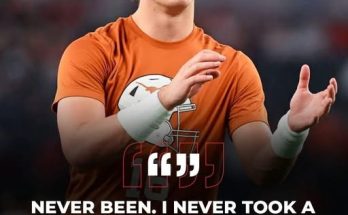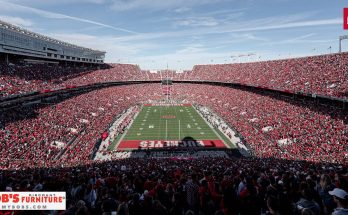**Goff Lays Bare the Brutal Truth Behind Rams’ Trade**
The NFL is a business, a ruthless machine that chews up players and spits them out when they no longer serve a purpose. Few know this better than Jared Goff, the former golden boy of the Los Angeles Rams, who was unceremoniously shipped off to the Detroit Lions in a blockbuster trade that sent shockwaves through the league. At the time, the move was framed as a necessary step for the Rams to acquire a proven winner in Matthew Stafford. But now, years later, Goff has peeled back the layers of that transaction, exposing the cold, unvarnished truth behind his departure—a truth that reveals just how cutthroat professional football really is.
Goff was supposed to be the Rams’ franchise quarterback for the next decade. Drafted first overall in 2016, he was the centerpiece of head coach Sean McVay’s offensive revolution, leading the team to a Super Bowl appearance in 2018. For a brief moment, it seemed like Goff and McVay were destined to dominate the NFC for years to come. But behind the scenes, tensions were simmering. The relationship between quarterback and coach wasn’t as harmonious as the public was led to believe. McVay, a brilliant offensive mind, grew increasingly frustrated with Goff’s limitations—his struggles under pressure, his occasional lapses in decision-making, and his inability to elevate the offense when the system wasn’t perfect.
The cracks began to show in 2020. Goff’s performance dipped, turnovers piled up, and the Rams’ offense, once a well-oiled machine, sputtered at critical moments. McVay, never one to mince words in private, made it clear that he wanted more from his quarterback. Then came the playoff loss to the Green Bay Packers, a game in which Goff, playing through a broken thumb, was outclassed by Aaron Rodgers. That was the final straw. The Rams’ front office, always aggressive under general manager Les Snead, saw an opportunity to upgrade. Stafford, a veteran with a cannon arm and a reputation for clutch play, was available. The Rams pounced, sending Goff, two first-round picks, and a third-rounder to Detroit in exchange for Stafford.
At the time, the narrative was simple: Goff wasn’t good enough. The Rams needed a quarterback who could win now, and Stafford was that guy. But Goff’s recent comments have shed new light on just how brutal the process really was. In interviews, he has admitted that the trade blindsided him, that he felt betrayed by an organization he had given everything to. “You think you’re building something long-term, and then one day, you’re just gone,” Goff said. “It’s a reminder that no matter what you’ve done, no matter how much you’ve sacrificed, you’re just an asset.”
What makes Goff’s revelation so compelling is that it forces us to confront the human side of these transactions. Fans often treat trades like fantasy football moves—cold, calculated decisions made for the betterment of the team. But for the players involved, it’s life-altering. Goff had built a home in Los Angeles, forged relationships with teammates, and bought into the Rams’ culture. In an instant, all of that was ripped away. He was no longer the face of the franchise; he was a discarded piece, a salary dump included to make the money work in the Stafford deal.
The Rams, of course, got what they wanted. Stafford led them to a Super Bowl victory in his first season, validating the trade in the eyes of many. But Goff’s resurgence in Detroit has added a fascinating layer to the story. Written off as a lost cause, Goff has quietly rebuilt his career with the Lions, proving that he was never the problem in Los Angeles—he was just a scapegoat. Under offensive coordinator Ben Johnson, Goff has thrived, showcasing the poise, accuracy, and leadership that made him a No. 1 pick in the first place. In 2023, he led the Lions to their first playoff win in decades, silencing critics who had labeled him a bust.
So, what does this say about the Rams’ decision? Was Goff really the issue, or was McVay’s system—and his impatience—the bigger problem? The truth likely lies somewhere in the middle. Goff wasn’t perfect, but he was far from a lost cause. The Rams, however, were in win-now mode, and McVay believed Stafford gave them a better chance to compete for championships. In that sense, the trade worked. But it also exposed the harsh reality of the NFL: loyalty is fleeting, and success is often measured in the coldest terms.
Goff’s story is a cautionary tale for young quarterbacks entering the league. Talent alone isn’t enough. You need the right coach, the right system, and the right timing. Most of all, you need to understand that no matter how much you achieve, you’re always one bad season—or one impatient front office—away from being replaced. Goff has handled his exit from Los Angeles with class, refusing to burn bridges or lash out publicly. But his honesty about the trade’s emotional toll serves as a powerful reminder that behind every headline-grabbing deal, there’s a human cost.
The Rams got their ring. Goff got his redemption. But the brutal truth remains: in the NFL, you’re only as valuable as your last game. And no one knows that better than Jared Goff.


